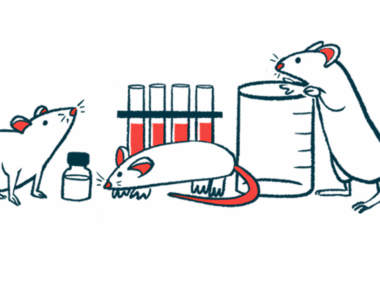Gene therapy AB-1005 found safe in Phase 1b Parkinson’s trial
AskBio plans to launch Phase 2 trial in first half of 2024
Written by |

Treatment with AB-1005 (AAV2-GDNF), AskBio’s investigational gene therapy, was safe and well tolerated among patients with mild to moderate Parkinson’s disease, according to top-line results from a Phase 1b clinical trial.
The company, wholly owned by Bayer, has also completed an 18-month data collection which demonstrated the feasibility of delivering the therapy directly to the brain, and is planning to present the results at a scientific meeting this year.
AskBio plans to start screening patients for Phase 2 trial
Moreover, AskBio is planning a Phase 2 trial, taking into account feedback from U.S. and European health authorities, and expects to start screening patients in the first half of the year.
“Although there is still much to learn about this early-stage investigational gene therapy, these first findings … have the potential to contribute to the clinical advancement of AB-1005 for the treatment of Parkinson’s disease,” Krystof Bankiewicz, MD, PhD, AskBio’s scientific chair of Parkinson’s and multiple system atrophy, said in a company press release.
Parkinson’s disease is caused by the progressive dysfunction and death of dopamine-producing neurons. This leads to a decrease in dopamine levels in the brain, which causes the disease symptoms. Dopamine is a chemical messenger neurons use to communicate.
AB-1005, originally developed by Brain Neurotherapy Bio, is a gene therapy that uses an adeno-associated virus (AAV2) to deliver the GDNF gene to specific brain areas, where it induces the production and release of a small protein called glial cell line-derived neurotrophic factor (GDNF). This protein supports the growth, survival, and differentiation of dopaminergic neurons.
The therapy is administered through neurosurgical injection directly to cells of the putamen — the brain structure responsible for movement — using MRI to guide its delivery directly to target cells. MRI is meant to improve the treatment’s precision, safety, and efficacy.
In the Phase 1 clinical trial (NCT04167540), 11 patients were divided into two groups, according to the timing of their Parkinson’s diagnosis and symptom severity at screening. One group enrolled six patients with mild-stage Parkinson’s, and the other group included five patients with moderate-stage disease.
The trial’s primary goal was to evaluate the safety of a one-time delivery of AB-1005 to the putamen. Results showed that the neurosurgical delivery of AB-1005 was well tolerated by all patients, with no serious therapy-associated events reported.
AB-1005 covered 63% of putamen, exceeding 50% target
Moreover, the therapy effectively covered 63% of the putamen, exceeding the established goal of more than 50% target coverage.
Patients also completed 18-month neurological assessments at regular intervals to evaluate the severity of motor symptoms, using the Movement Disorder Society’s Unified Parkinson’s Disease Rating Scale and motor diary self-assessments, and nonmotor symptoms, using the Non-Motor Symptom Scale. Additionally, brain imaging was performed to assess dopaminergic neuron integrity.
The safety and efficacy evaluations will continue for up to five years.
“The positive outcome of the AB-1005 Phase Ib clinical trial is an important step forward in our goal to deliver much-needed treatments in areas where innovation has the potential to make a tremendous impact,” said Christian Rommel, PhD, Bayer’s member of the executive committee of pharmaceuticals division, and head of research and development.




